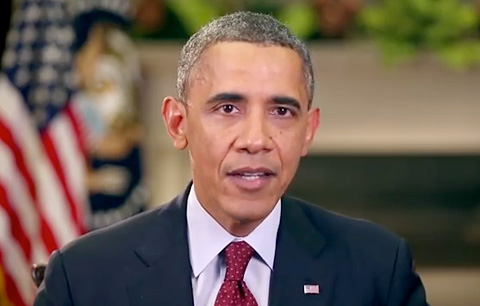
WASHINGTON – Today, continuing to fulfill his promise to make 2014 a year of action, the President will sign an Executive Order to raise the minimum wage to $10.10 for federal contract workers.
According tothe White House, the Executive Order the President will sign today will benefit hundreds of thousands of people working under contracts with the federal government who are making less than $10.10 an hour. It will also improve the value that taxpayers are getting from the federal government’s investment. Studies show that boosting low wages will reduce turnover and absenteeism, while also boosting morale and improving the incentives for workers, leading to higher productivity overall. These gains improve the quality and efficiency of services provided to the government.
The Executive Order will raise the minimum wage to $10.10 effective for new contracts beginning January 1, 2015.
In his State of the Union Address, President Obama pledged to both take executive action wherever he can and work with Congress to increase opportunity for all Americans. Consistent with that pledge, the President will continue to work with Congress to finish the job to raise the minimum wage for all Americans and pass the Harkin-Miller bill so that all workers can be paid at least a $10.10 minimum wage.
A poll conducted last year showed that 80 percent of Americans support a Harkin-Miller proposal to increase the minimum wage to $10.10 in three steps. The legislation would then provide for automatic annual increases linked to changes in the cost of living. Harkin and Miller’s bill, the Fair Minimum Wage Act of 2013, would also gradually raise the minimum wage for tipped workers—which currently stands at just $2.13 an hour—for the first time in more than 20 years, to 70 percent of the regular minimum wage.
The White House said that the President is using his executive authority to lead by example, and will continue to work with Congress to raise the minimum wage for all Americans by passing the Harkin-Miller bill. The President will also continue to support and encourage state, local and private sector efforts to increase wages and help more working families.
The White House pointed to these supposed benefits of raising the minimum wage:
- Businesses like Costco have supported past increases to the minimum wage because it helps build a strong workforce and profitability over the long run. Low wages are also bad for business, as paying low wages lowers employee morale, encourages low productivity, and leads to frequent employee turnover—all of which impose costs.
- Across the country, Americans are saying it’s time to raise the minimum wage. The President believes that it’s time for action, and people across the country agree. Since the President called for an increase in the minimum wage in last year’s State of the Union, five states have passed laws increasing their minimum wage. And many businesses, from small businesses to large corporations, see higher wages as the right way to boost productivity and reduce turnover and therefore boost their profitability.
- Raising the minimum wage is good for government, good for business and workers and key to a stronger economy. A range of economic studies show that modestly raising the minimum wage increases earnings and reduces poverty without jeopardizing employment. Higher wages can also boost productivity, increase morale, reduce costs and improve efficiency.
- Raising the minimum wage will make sure no family of four with a full-time worker has to raise their children in poverty. It has been seven years since Congress last acted to increase the minimum wage and, adjusted for inflation, today the real value of minimum wage is roughly the same as what it was in the 1950s, despite the fact that the typical American family’s income has doubled since then. And right now a full-time minimum wage worker makes $14,500 a year, which leaves too many families struggling to make ends meet. Even after accounting for programs like the Earned Income Tax Credit, a family of four supported by a minimum wage worker still ends up living below the poverty line.
- Indexing the minimum wage to inflation would help lower-income workers keep up in the future. Since it was first established in 1938, the minimum wage has been increased 22 times, but was eroded substantially over several prolonged periods between increases because of inflation. Indexing would prevent a repeat of the 34 percent decline in the real value of the minimum wage from 1978 to 1989 and the 19 percent decline in real value from 1998 to 2006, as well as the 40 percent decline in the real value of the base wage for tipped workers since it was last raised in 1991. Last year alone, workers earning the minimum wage basically got the equivalent of a $200 pay cut because the minimum wage stayed the same while the cost of living went up. Democrats and Republicans agree that indexing the minimum wage to inflation would ensure that working families can keep up with expenses. Unfortunately, those families will continue suffer if Congress continues to not act.
- Helping parents make ends meet. Around 60 percent of workers who would benefit from a higher minimum wage are women. Less than 20 percent are teenagers. Also, those workers who would benefit from an increase in the minimum wage brought home 46 percent of their household’s total wage and salary income in 2011. Raising the minimum wage directly helps parents make ends meet and support their families.









